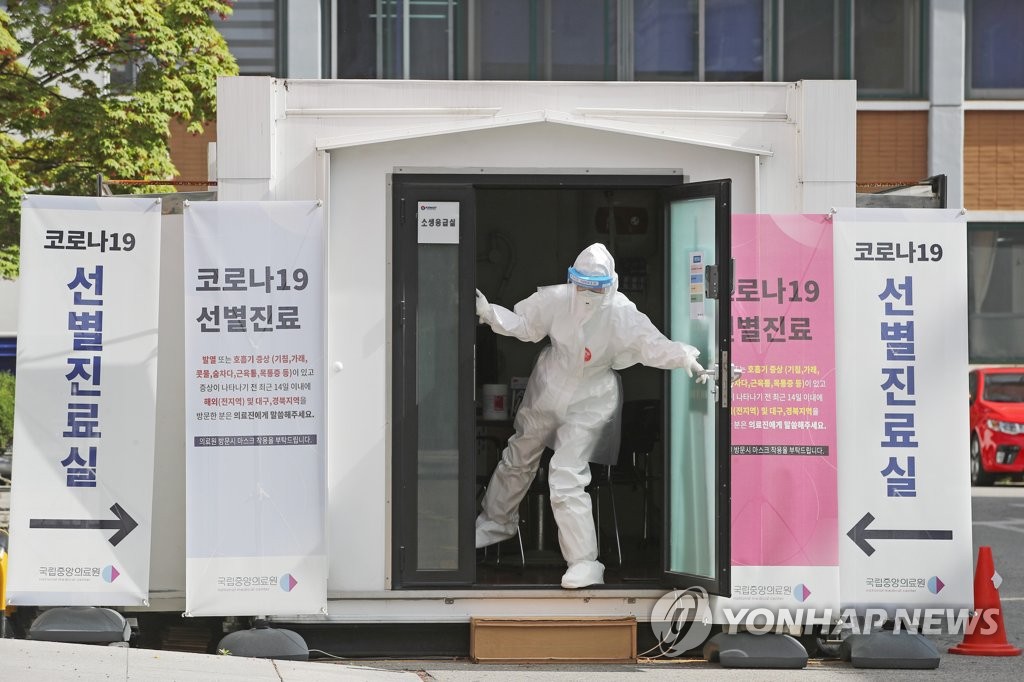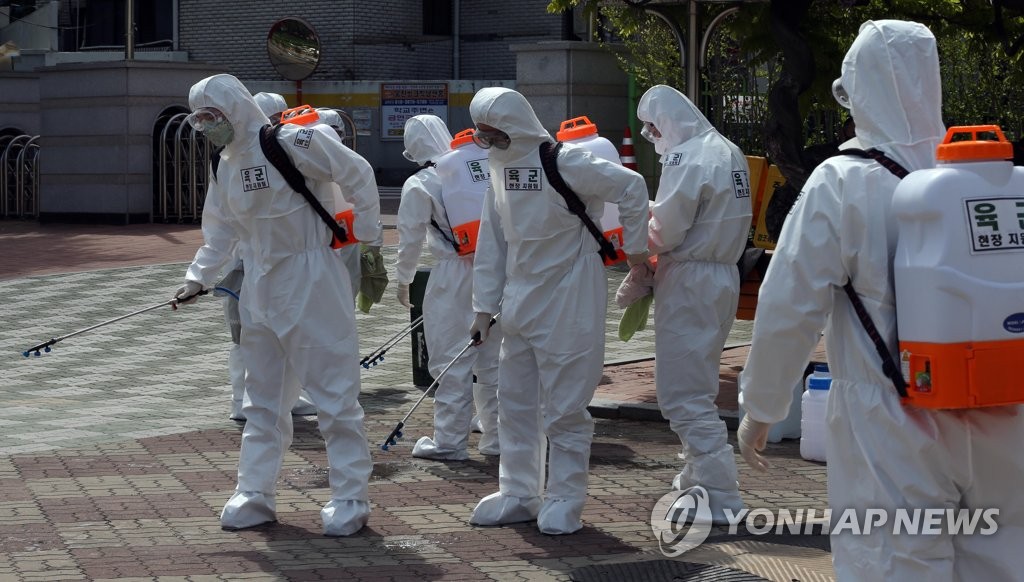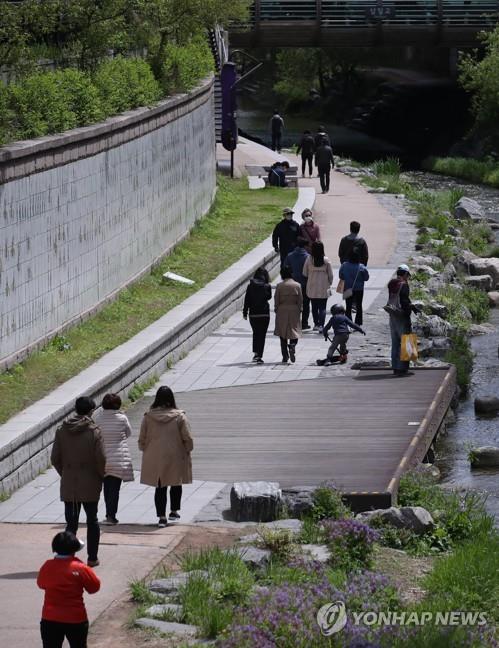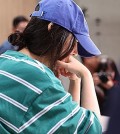- California Assembly OKs highest minimum wage in nation
- S. Korea unveils first graphic cigarette warnings
- US joins with South Korea, Japan in bid to deter North Korea
- LPGA golfer Chun In-gee finally back in action
- S. Korea won’t be top seed in final World Cup qualification round
- US men’s soccer misses 2nd straight Olympics
- US back on track in qualifying with 4-0 win over Guatemala
- High-intensity workout injuries spawn cottage industry
- CDC expands range of Zika mosquitoes into parts of Northeast
- Who knew? ‘The Walking Dead’ is helping families connect
S. Korea reports single-digit new virus cases again
South Korea reported another single-digit increase in new virus cases Tuesday in a clear sign of a slowdown in the spread of the new coronavirus, bringing the nation’s total infections to 10,683.
The country detected just nine new COVID-19 infections Monday, marking the third day in a row that the country’s new virus infections stayed below 15, according to the Korea Centers for Disease Control and Prevention (KCDC).
Five of the newly added cases were imported, the data showed, raising the total number of such cases to 1,011. South Korean nationals accounted for 91.6 percent.
Arrivals from North America and Europe were responsible for 87 percent of the imported cases.



Medical workers get ready for work at a hospital in central Seoul on April 21, 2020. (Yonhap)
The country announced a single-digit number of new cases Sunday for the first time in two months at eight, followed by 13 cases the following day.
The plateauing figures mark a drastic drop from the Feb. 29 peak of 909 new cases. The country confirmed its first COVID-19 infection on Jan. 20.
The nation’s death toll from the coronavirus rose by one to 237, the authorities said.
The overall fatality rate reached 2.22 percent, with the figure at 23.4 percent for patients in their 80s.
No deaths have been reported among patients under 30, though they account for nearly 35 percent of the total infections.
Patients in their 20s were responsible for the largest number of infections among age groups at 2,928, or 27.4 percent.
While there were also 138 infections from those under the age of 10, the KCDC said it is still uncertain whether the younger patients are less infectious than adults.
In total, 8,213 virus patients in South Korea have been discharged from hospitals, up 99 from a day earlier. So far, the country has carried out tests on 571,014 people since Jan. 3.
The number of new infections continued to slow in Daegu, the nation’s worst virus-hit region that accounts for around 64 percent of the total cases, with just two additional cases.
North Gyeongsang Province, which surrounds Daegu, reported no additional infections.
Seoul, the most populous city of South Korea, reported two new cases, with the surrounding Gyeonggi Province adding two new COVID-19 infections as well.
The number of people who tested positive again for COVID-19 after making full recoveries has reached 192 since the first such case was identified on April 8.
So far, four medical workers have been infected with the virus during their duty, according to the KCDC.
Starting Monday, South Korea applied a relaxed social distancing advisory on some facilities, including gyms and cram schools, as the number of new COVID-19 infections here showed a continued downward trend.
South Korea announced it will maintain the social distancing drive until May 5, but it will ease some rules under the condition that such facilities comply with safety measures.
South Korea will reopen public facilities with lower risks of infections, including arboretums on Wednesday.
Health authorities, however, said the country needs to remain vigilant over cluster infections, considering last week’s general elections, where more than 29 million voters showed up at polling stations nationwide wearing face masks.
The authorities also requested that people refrain from making group tours over the upcoming long holiday, starting with Buddha’s Birthday on April 30 and followed by May Day on May 1 and Children’s Day on May 5.
South Korea said it will seek to slowly move toward what it calls “everyday life quarantine,” starting May 6.
“We still believe an unexpected cluster infection can pop up at anytime,” KCDC Deputy Director Kwon Joon-wook said during a daily briefing. “It is still positive, however, that we are moving towards the summer season, and that we are effectively blocking imported cases.”
Kwon said it is unlikely that the vaccine for COVID-19 will be commercialized in the near future, calling for the public to stay alert for another round of coronavirus pandemic later this year.
South Korea, meanwhile, plans to use electronic wristbands equipped with a location-tracking system on people who violate self-isolation rules starting next week to better contain the spread of the novel coronavirus.
The country is set to come up with details this week.
There have been controversies over the wristbands as some have pointed out that such a measure does not have legal grounds and can be subject to potential human rights violations.
Health authorities earlier said they plan to beef up their surveillance on violators by making visits to homes in case the violators refuse to wear the bands.











